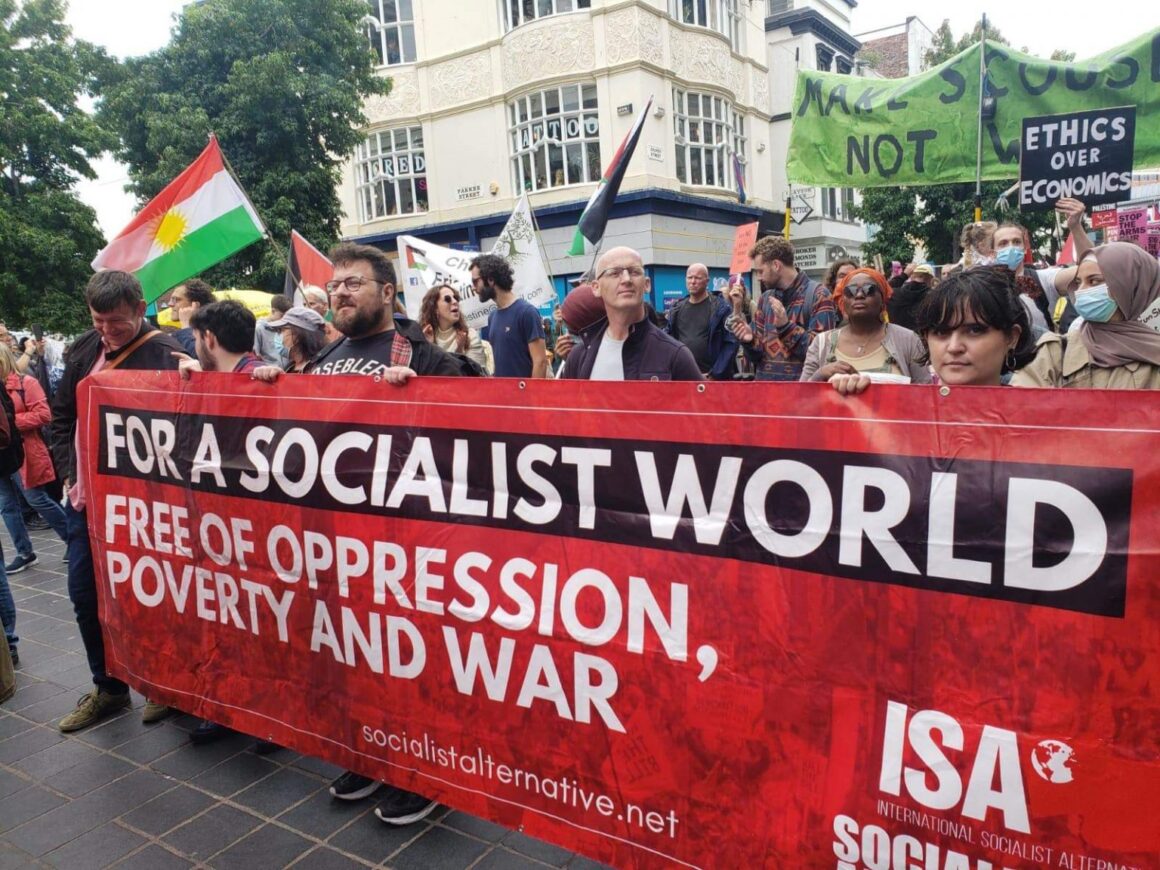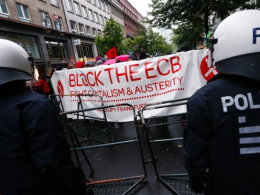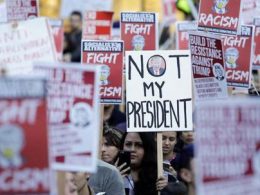By Daniel Waldron
THE OVERARCHING nature of the Assembly election on 5 May will, unfortunately, be deeply sectarian. Sinn Féin will appeal to Catholic voters to return them as the largest party, which they pose as a step towards securing a border poll and delivering a capitalist united Ireland. Having been damaged by their initial acquiescence to the Northern Ireland protocol and the regulatory border in the Irish Sea, the DUP will conversely appeal to Protestant voters to unite around them to prevent this. This is a recipe for sectarian stalemate which can inflame tensions and break out in conflict, as we saw with the riots at Lanark Way in Belfast last year.
The power-sharing institutions have stumbled from crisis to crisis, based on a series of uneasy agreements to disagree over the divisive issues. The only issue upon which there has been broad agreement between the Unionist and nationalist parties is on their shared pro-capitalist economic agenda. Now that the issues of borders and the existence of the Northern Ireland state itself are coming to the fore, however, it is questionable whether a new deal can becobbled together. Even if the Executive can be resurrected after this election, it is clear that the ‘peace process’ as it has
existed is drawing to an end.
Most voters will feel compelled, more or less reluctantly,to give their support to the Unionist or nationalist parties. It is undoubtedly the case, however, that a growing section of the population, particularly young people, are fed up with the sectarian bickering of the main parties and their failure, almost a quarter of a
century on from the Good Friday Agreement,to overcome the divisions in our society and deliver a better life for ordinary people. Unionism and nationalism are both dead-ends for the interests of workers and young people. They offer only continued poverty and division. An alternative is urgently needed.The question is, what kind of alternative do we need?
Many will see Alliance as the most obvious ‘non-sectarian’ alternative. But Alliance has consistently and openly supported policies which are detrimental to working-class communities – water charges, increasing tuition fees, welfare ‘reform’, and opposing trade union rights. The Greens are understandably attractive to many young people who are rightly concerned about climate change, but the Greens accept the limitations of the very capitalist system which is driving environmental destruction. People Before Profit offer a more explicitly left programme but they take a one-sided and ultimately nationalist position on the divisive issues, limiting their ability to bring people together across the sectarian divide.
The Socialist Party is contesting the Assembly election to provide a genuinely anti-sectarian, socialist alternative. Our candidates – Neil Moore in South Belfast and Amy Ferguson in West Tyrone – are young trade union activists with impressive track records of campaigning on workers’ rights, gender oppression and environmental destruction. They will campaign in all working-class communities and argue for class unity against sectarianism, against the bosses and against their political representatives – whether green, orange or yellow.
Where there are genuine left-wing and cross-community candidates standing, such as Donal O’Cofaigh in Fermanagh and South Tyrone, we encourage people to vote for them. Ultimately, the crucial issues facing
working people and the planet will not be resolved at the ballot box. That will require united struggle by workers and young people against the rotten capitalist system. We will use our campaigns to help organise that struggle. Only the coming together of working-class people around our common interests, in the fight for a socialist future, can sweep away sectarian division and lay the basis for a genuinely democratic and lasting solution to the conflict here,without coercion and with the rights of all communities guaranteed.












